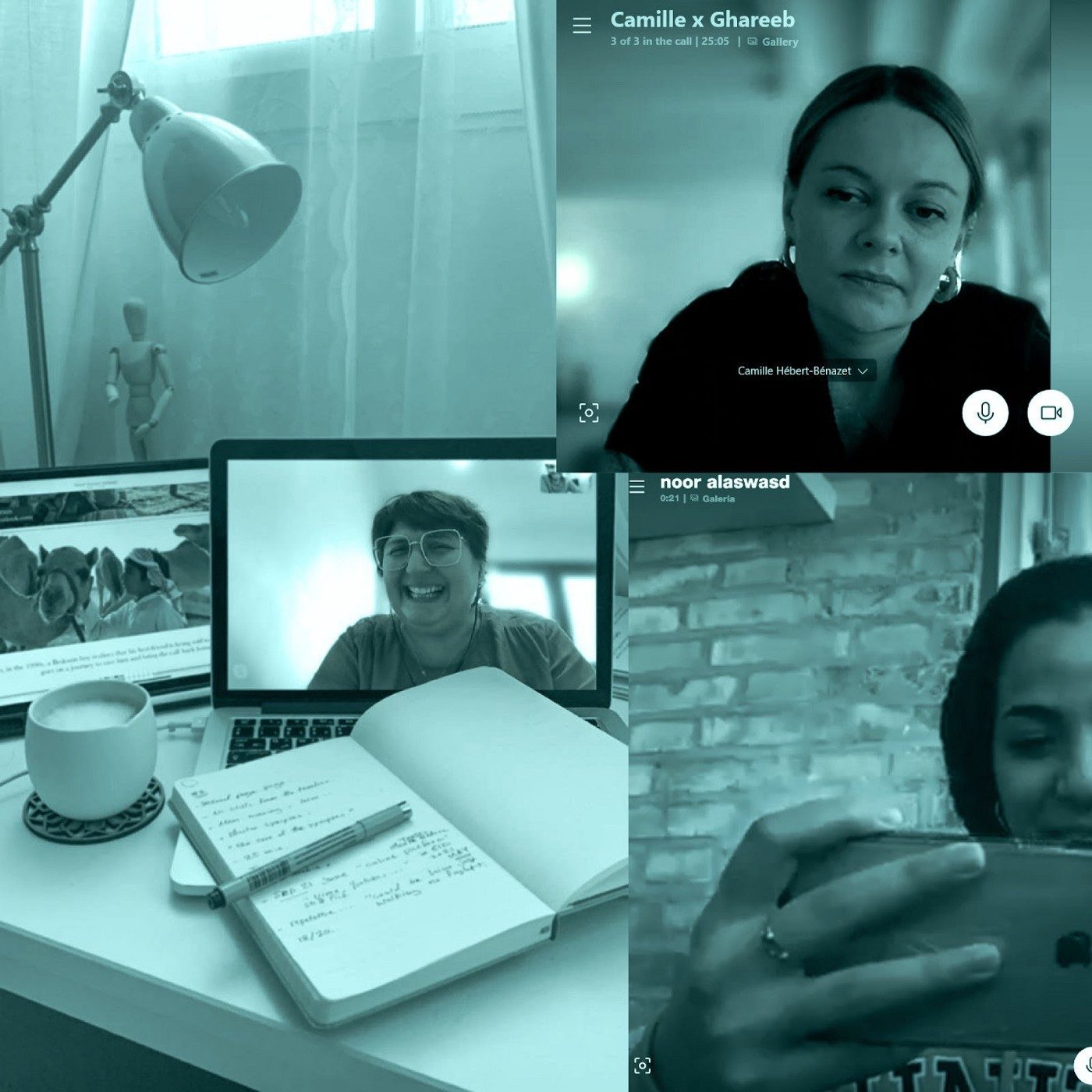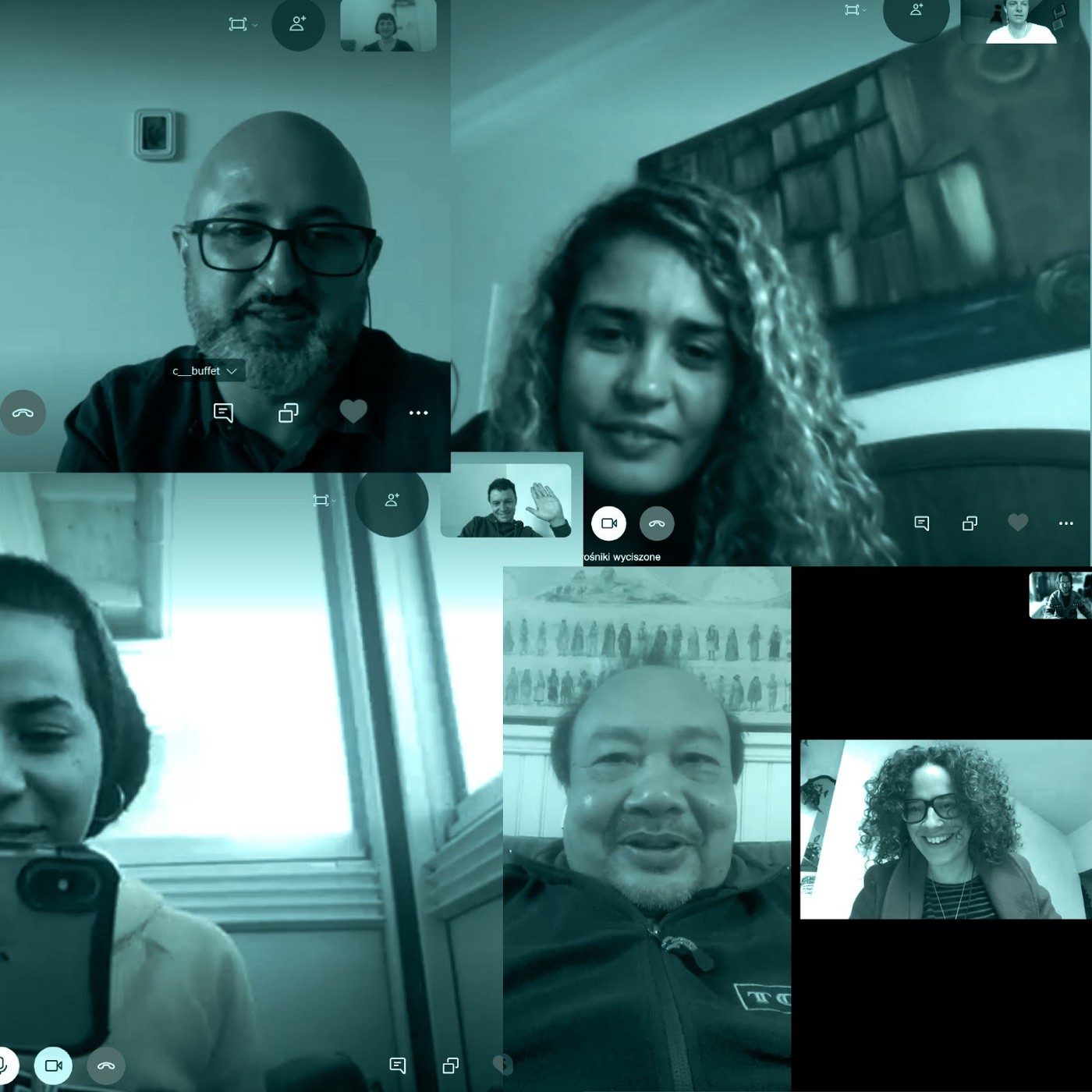Qatar’s film, design, fashion and art sectors were still relatively young when the pandemic hit, so will they prove resilient enough to weather the storm?
Qatar’s creative industries have seen major developments over the last 10 years, with organisations such as Qatar Museums and Doha Film Institute providing support and resources to artists, filmmakers, photographers, designers and more. But after an unexpected standstill in the face of the pandemic, how have they learned to cope? And will long-lasting effects hinder their development?
THE SETBACKS
By mid-March this year, Qatar’s schools and universities had closed. Thousands of people began working from home, and most events and activities in the creative world were canceled or postponed.
“Along with our normal commercial productions, we had plans to shoot a feature film and a television series”, explains Justin Kramer, CEO of The Film House, one of Doha’s production companies. “It’s been very difficult to run large scale productions during this period, for obvious reasons but also because having filmmakers and other crew fly into Qatar is impossible.”

Meanwhile at Qatar Museums, the opening of M7 — a new five-story, 29,000-square-metre ‘entrepreneurship hub’ for fashion, technology and design — was postponed until further notice.
Maha Al Sulaiti, Director of M7, says: “A lot of things changed. The way we work and communicate was all done from home. […] in our case getting a building ready and coordinating with different stakeholders takes more time and effort.”
Instead of a physical opening event, M7 was launched online. It has since hosted a series of live sessions and mentorship programs, which Maha says “really helped us engage with designers.”
Doha Film Institute’s annual Qumra event, which provides mentorship and development for filmmakers from Qatar and around the world, took a blow too and was held online. The institute’s CEO, Fatma Hassan Alremaihi, explains: “We had to take quick and decisive steps amid the global COVID-19 outbreak.
“I believe the online edition has proved to be a successful and inspirational extension of our ongoing activities by giving filmmakers unprecedented access to the mentorship, feedback and networking to get their projects off the ground and out to audiences.”

One freelance artist who has worked for another one of Doha’s film production houses shared their experience of working during the pandemic. Preferring to remain anonymous, they said: “One project after another cancelled and the income dwindled […] And companies paused marketing spend in anticipation of reduced cash flows and income. Our company terminated the majority of its staff. Those who remained now needed to work from home, taking on double, triple the workload which definitely affected the quality of the work.”
THE AFTERMATH
With so many jobs and initiatives at stake within the creative industry, how have these entities dealt with the unexpected setbacks?
While some, like Doha Film Institute, may have found success working online, The Film House opted to continue with their business as usual by introducing changes to ensure a safer working environment. CEO Justin Kramer explains: “We’ve done a very good job of continuing to be productive and actually make some fantastic projects during this time. We’ve implemented very strict health and safety guidelines and, with the cooperation of our staff and crew members, we’ve had great success.”
THE FUTURE
Although the pandemic has allowed some creatives to work on their own projects, many are also struggling to make a living.
Saskia Schiel, a freelance film producer working in Qatar, told Doha News: “Some have been able to use this time productively to work on projects they didn’t have time for before and driven by the need for self-expression. One friend is starting up her own clothing line, another finished a script she has been working on for years.
“For others though, the lack of income has been devastating. I have friends who haven’t earned a penny in months, now selling off assets or looking for work in any field that will employ them”.
Justin Kramer from The Film House says: “It’s rare that we have an opportunity to slow down and work on things that we had been putting off for ages. Time at home, away from the office, away from the daily grind, has really allowed us to fine tune things and we are ready to produce some really memorable things when we can hit the ground running at full steam again.”
M7’s Mahal Al Sulaiti believes that the solutions Qatar Museums has come up with to continue working are an important step towards greater sustainability in her sector. She says they have been creating less waste and putting a greater emphasis on a creative industry that is “more cohesive and collaborative as we learn the power of working together”.
Although more can be done to ensure the well-being and future of Qatar’s creatives — particularly those who work as freelancers — the pandemic has in many ways encouraged creative industries to support each other and collaborate more.

Fatma from Doha Film Institute says: “We should never forget the lessons that this time will undoubtedly imprint within our society and in the way we create. Lasting change is inevitable, but I believe that we are witnessing a global spirit of collaboration and solidarity in finding solutions, particularly amongst cultural institutions […] who share a common goal to help and support creative talents.”







